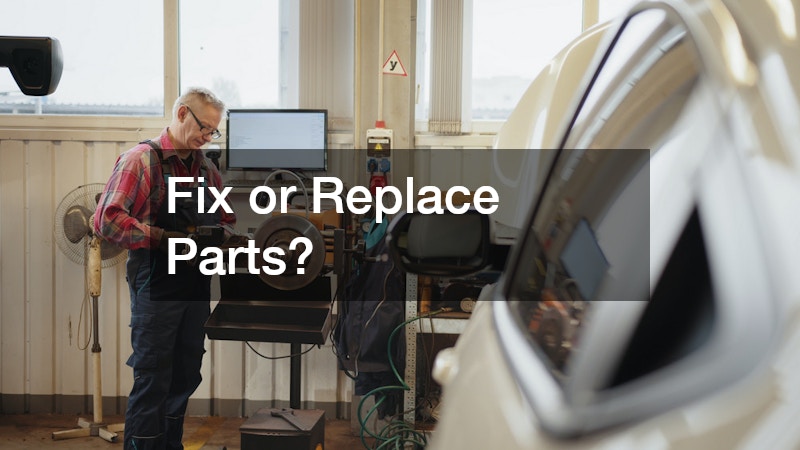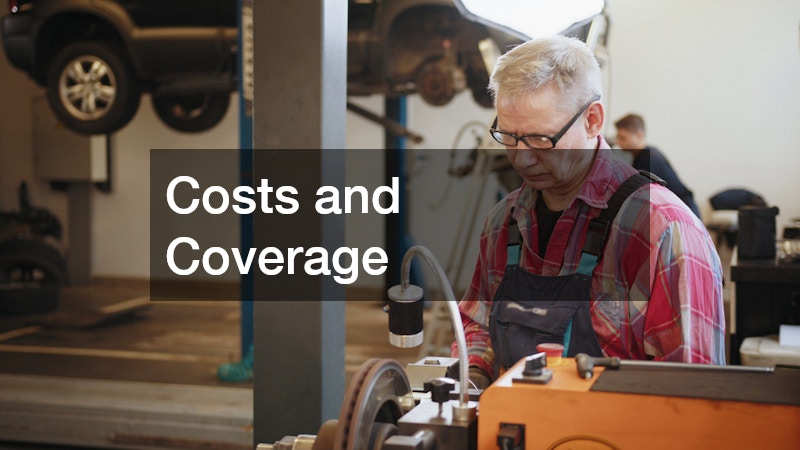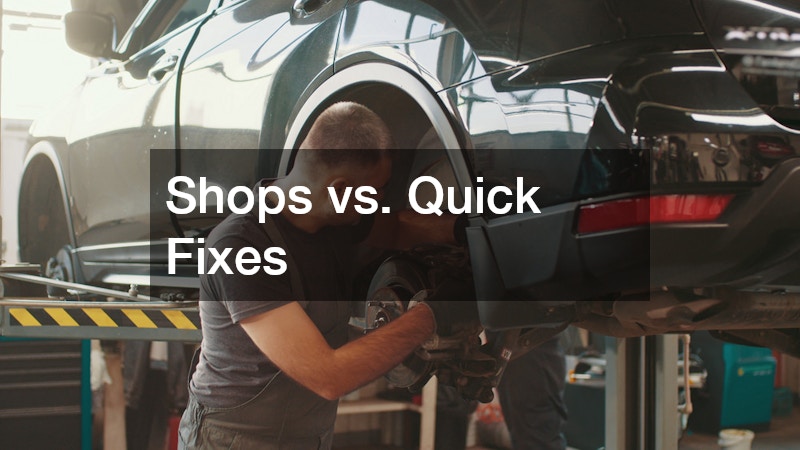When it comes to automotive safety, few components play a more vital role than your vehicle’s ability to stop effectively. Being able to rely on your car’s stopping power in any driving condition, whether it’s wet pavement, sudden traffic, or a steep incline, is critical. Despite this, many drivers overlook the health of their vehicle’s braking system until problems arise. Preventative care and expert brake repair can go a long way in protecting you, your passengers, and others on the road.
This guide is designed to help everyday drivers understand the essentials of proper stopping system maintenance and safety. We’ll start by discussing why your vehicle’s stopping ability is so important, including the risks involved in neglecting warning signs. From there, we’ll look into common issues and how to distinguish between minor concerns and major repairs. We’ll also explain how to determine whether it’s better to repair or replace certain parts and how to choose the right service provider for the job.
Beyond mechanical fixes, this guide will explore practical considerations like managing costs, understanding protection plans, and arranging transportation if your car needs to stay in the shop. We’ll look at differences between professional repair centers and quick fixes, then finish with advice on supplementary protections and long-term maintenance habits.
By the end, you’ll understand the importance of staying proactive, aware, and confident when it comes to your vehicle’s safety systems. Whether you’re a first-time driver or a seasoned commuter, this guide offers actionable information you can trust. Let’s begin with why reliable stopping power should never be taken for granted.
1. Why Stopping Matters

The ability of a vehicle to stop quickly and reliably is one of its most essential safety features. Every time you drive, you rely on your car’s ability to come to a full stop, whether at a red light, in heavy traffic, or during an emergency. It’s easy to forget how critical this function is until something goes wrong. Faulty systems can lead to longer stopping distances, unsafe driving conditions, and even severe accidents. Maintaining your vehicle’s stopping performance should be treated as a top priority.
Many drivers wait until their brakes feel “off” before seeking help, but early attention to issues often leads to easier and less costly brake repair. Things like squeaking sounds, pedal vibrations, or slower stopping times are often dismissed. However, these are all signs that something may be wrong and should never be ignored. Identifying small issues early can prevent bigger mechanical failures and keep your vehicle safer on the road.
Expert brake repair doesn’t just focus on fixing the issue, it also ensures your entire braking system is functioning at optimal levels. Skilled technicians use professional diagnostics and proven techniques to address problems that might be missed with a basic inspection. This thorough approach helps prevent future breakdowns and offers peace of mind that you and your passengers are protected.
2. Warning Signs to Know
Staying alert to warning signs is one of the best ways to avoid system failure. When your vehicle’s stopping function is compromised, it often tries to tell you. Unusual noises like squealing or grinding, a soft or spongy pedal, or noticeable pulling to one side when you stop are all signs that something may be wrong. Recognizing these signs early can prevent more serious and expensive damage.
Not every issue feels urgent at first, but ignoring early signs can quickly lead to bigger problems with your brakes. For example, a small squeak might seem harmless but could mean your brake pads are worn thin. If left unchecked, this can damage your rotors, leading to higher repair bills and longer service times. Understanding what your car is trying to tell you is a critical skill every driver should develop.
That’s why expert brake repair services place strong emphasis on system diagnostics and education. Technicians are trained to detect both obvious and subtle signs of wear or failure. They not only fix the immediate issue but also help you understand the root cause so you can prevent similar problems in the future.
3. Common System Issues
Brake systems are complex, with multiple components working together to bring your vehicle to a smooth and safe stop. Some of the most common issues drivers face include worn pads, warped rotors, leaking fluid, or malfunctioning calipers. While these problems are not uncommon, they can vary widely in severity and often require professional evaluation to diagnose correctly.
For instance, worn-out pads may just need a routine replacement, while a fluid leak could indicate a deeper issue with your master cylinder or brake lines. Attempting to diagnose or fix such issues without proper tools or knowledge can lead to incomplete repairs or worse, safety risks. Timely brake repairs done by professionals can make a significant difference in restoring your car’s performance and keeping you safe behind the wheel.
That’s where expert brake repair comes into play. A professional technician won’t just guess at the problem—they’ll inspect the system thoroughly, identify the exact issue, and make the right recommendation for long-lasting results. This level of service is essential for catching problems early and preventing them from becoming major hazards later on.
4. Fix or Replace Parts?

When your car’s stopping system starts acting up, one of the first questions that comes to mind is whether the parts should be fixed or replaced. The answer depends on the extent of wear or damage, the age of your vehicle, and your driving habits. Some components are designed to be replaced regularly, like pads and fluid, while others, like rotors or calipers, might only need occasional attention depending on usage.
In general, minor issues can be addressed with a targeted fix, while more serious damage or long-term wear may require replacement. For instance, a small vibration during braking might only need a rotor resurfacing, while deep grooves in the rotor surface could require full replacement. It’s important not to guess—each situation is unique, and proper assessment makes all the difference.
That’s where expert brake repair services within a trusted auto repair facility become so valuable. These professionals evaluate whether replacement or repair is the better long-term solution, saving you from unnecessary costs or repeat visits. They use manufacturer specifications and performance testing to ensure the right path is taken for both safety and efficiency.
5. Choosing a Shop Wisely
Finding a reputable repair provider can make a big difference in the quality of service you receive. Not all shops are created equal—some may offer fast, cheap fixes, while others specialize in long-term, safety-first maintenance. As a vehicle owner, it’s important to do a bit of research before handing over the keys.
Start by checking online reviews, certifications, and the kinds of services offered. A solid auto body shop that also handles mechanical work may have skilled technicians on staff. You’ll still need to make sure they’re experienced with stopping system diagnostics specifically. A clean, organized space with upfront pricing and warranties is also a good sign.
Expert brake repair isn’t just about tools and parts. It’s about trust, communication, and professionalism. Choose a shop that walks you through the problem, explains your options clearly, and treats your safety as a top priority. The right provider will make you feel confident in both the process and the results.
6. Costs and Coverage

Understanding the financial side of repairs is just as important as knowing the mechanical details. Costs for repair services can vary widely depending on the vehicle, the severity of the issue, and labor rates in your area. Planning and knowing what to expect can reduce stress and help you make smarter financial decisions.
One area many drivers overlook is how much help they might get from an auto insurance service. While most insurance plans don’t cover routine wear and tear, some extended plans or mechanical breakdown policies may help with unexpected failures. It’s worth reading the fine print or contacting your provider to see what’s included.
In the case of expert brake repair, technicians may even assist in providing documentation or estimates required by your insurance company. Their familiarity with industry standards ensures that everything is detailed correctly, helping you secure reimbursement or coverage if applicable. Having professionals guide you through both the repair and insurance process adds another layer of support.
7. While Your Car Waits
When your vehicle is in the shop for an extended period, having reliable transportation is essential to keep your daily routine running smoothly. Downtime can be frustrating and disruptive. Planning for alternative transportation options can ease this stress.
Many repair facilities partner with a trusted vehicle rental company to offer loaner vehicles or discounted rentals while your car undergoes expert brake repair. This arrangement allows you to maintain mobility without bearing the full cost or hassle of arranging a rental yourself. Knowing these options exist ahead of time can bring peace of mind.
In addition to rentals, some shops may offer shuttle services or coordinate ride-sharing alternatives. Taking advantage of these solutions means you won’t have to compromise on safety or convenience while your vehicle is being serviced by skilled technicians who focus on thorough, lasting repairs.
8. Shops vs. Quick Fixes

When your stopping system starts acting up, you might be tempted by quick fixes or do-it-yourself options offered by local service providers. While these can be convenient and affordable, they don’t always guarantee the quality or safety that professional repairs provide. It’s important to weigh the risks and benefits carefully.
Many facilities that do local auto repairs excel at handling minor tune-ups and routine maintenance. However, stopping systems require precise knowledge and equipment to diagnose and fix correctly. An improper repair can lead to reduced effectiveness, putting you and others at risk. When safety is on the line, it pays to invest in expert care.
That’s why expert brake repair centers with certified technicians and advanced tools should be your first choice. They provide detailed inspections, correct repairs, and follow-up advice that quick fixes often lack. Choosing quality over speed protects you from future headaches. It also ensures your vehicle’s safety systems perform as designed.
9. Add-On Car Protections
While the focus is usually on mechanical components, protecting your vehicle from environmental damage also plays a role in overall maintenance. Weather, debris, and exposure can accelerate wear on many parts, including the braking system. Investing in protective measures can extend your vehicle’s lifespan and reduce repair frequency.
One effective way to protect your vehicle is with durable metal carports, which shield your car from sun, rain, snow, and falling debris. By reducing exposure to harsh elements, you prevent rust and corrosion that can affect brake lines and other critical components. It’s a simple, proactive step that complements mechanical upkeep.
Combining physical protection with routine expert brake repair creates a comprehensive care plan. You’ll not only maintain stopping power but also preserve your vehicle’s overall condition. These add-on measures save time, money, and stress by reducing the likelihood of unexpected breakdowns and expensive repairs.
10. Staying Road Ready
Being prepared for any situation on the road goes beyond just having a reliable braking system. It also includes addressing other common issues that can leave you stranded, such as lost or malfunctioning keys. Staying proactive about such challenges is part of responsible vehicle ownership.
Having access to professional car key replacement services ensures that if your keys are lost, damaged, or locked inside your vehicle, you won’t be stuck without options. Just as you rely on expert care to keep your stopping system safe, you should trust skilled technicians for these emergencies as well.
When combined with regular expert brake repair and maintenance, ensuring your keys are in good working order means you’re fully equipped for safe, worry-free driving. Preparation in all areas of your vehicle’s care keeps you confident and ready for the road ahead.
These Are the Brakes
Expert brake repair is a crucial element in maintaining your vehicle’s safety and performance. From understanding why your vehicle’s ability to stop is so vital to recognizing warning signs early, each step helps protect you and those around you. By addressing common system issues promptly, you avoid costly repairs and potential hazards. Knowing when to repair or replace parts and selecting the right shop ensures that your vehicle receives the best care possible.
Financial considerations, including potential support from insurance services, make managing repairs less stressful. While your car is being serviced, arranging alternative transportation through rental companies keeps your life on track without interruption. Choosing professional, expert repair over quick fixes guarantees a thorough, lasting solution.
By focusing on expert brake repair and adopting a proactive mindset, you prioritize your safety and enhance your confidence on the road. This guide underscores that proper care is about more than fixing problems. It’s about preventing them, choosing trusted professionals, and maintaining your vehicle for years of safe driving ahead.
